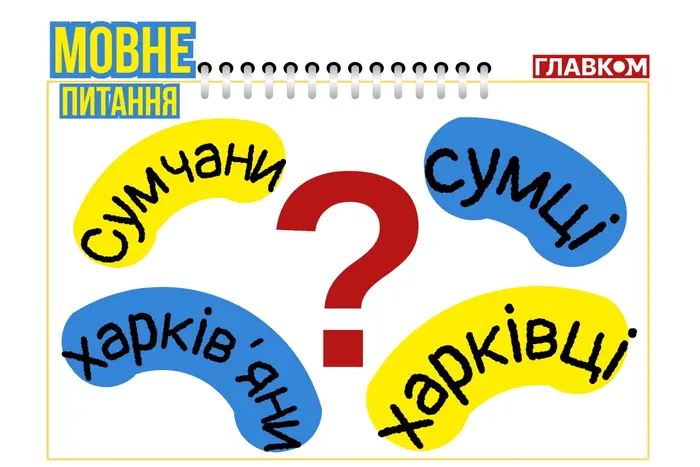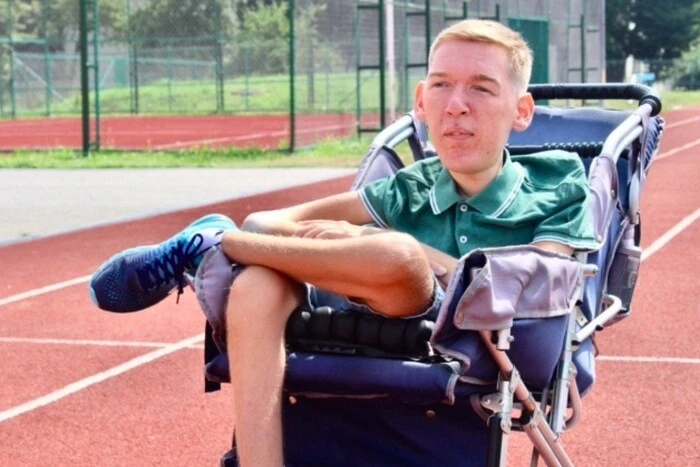Sumchani, sumci or sum'yani? The linguist explained how to properly refer to the residents of Sumy and other Ukrainian cities.


The philologist explained how to properly refer to the residents of various cities in Ukraine.
Olga Vasilieva noted that residents of Sumy are referred to as 'sumci' or 'sum'yani', but the term 'sumchani' is not correct according to linguistic norms.
In Crimea, there are Crimean Tatars, Karaites, Krymchaks, Ukrainians, and other ethnic groups that can be found in the Hrinchenko dictionary. Regarding the residents of Kharkiv, it is correct to use both 'kharkivtsi' and 'kharkiv'yani', as well as 'ternopiltsi' or 'ternopilyani'. The residents of Sumy are not 'sumchani', but 'sumci' or 'sum'yani'. Similarly, the terms 'odesci' and 'cherkasi' can be used.
Vasilieva also pointed out that the word 'kyivtsi' can be used, as the Hrinchenko dictionary contains the word 'kiyansky' as a variant of 'kyivsky'. In her opinion, if there is a pair 'kyiany/kiyansky', then there should be a pair 'kyivtsi/kyivsky', which is logical according to linguistic rules.
Regarding the residents of Lviv, Vasilieva mentions that the word 'lvivtsi' could exist, but the association with sheep makes it unacceptable. She argues that the most common suffix in the names of residents is '-ets', which was recorded as early as the 14th century.
The philologist emphasizes the use of suffixes '-ets' or '-yan-' where possible. The Ukrainian language allows the formation of words with the suffixes '-chani', but only for the names of settlements with certain suffixes. For example: 'vinnychani' (Vinnytsia), 'truskavchani' (Truskavets), 'donechchani' (Donetsk), 'chernivchani' (Chernivtsi), 'hadyachani' (Hadyach), 'priluchani' (Priluki).
Olga Vasilieva has also previously pointed out common mistakes made by Ukrainians in the use of expressions and words, such as 'pidkazhit', 'zgidno z', 'vidpovidno do'. She recommends avoiding the addition of the letter 's' to the word 'pidkazhit' and using correct forms such as 'zgidno zakonu' instead of 'zgidno z zakonom'.
The philologist reminds that Ukrainian names do not have the Russian suffix '-ik'. Therefore, it is correct to use and write names such as Tolyik, Vitalik, Slavyk, Vladik, Vadyk, Kostyk, Rostyk, Edik, Danyk.
Vasilieva also notes that not all borrowed words need to be replaced. For example, 'fidbek' can be replaced with 'zvorotnyy zv'yazok', but it is harder to replace with 'laifhakam'.
Read also
- The tragedy in Israel: a family from Ukraine has died - new details revealed
- A six-year-old boy has gone missing in Ivano-Frankivsk region: the search continues for the second day
- Judge of 'MasterChef' reported on the condition of a colleague who lost everything due to a rocket attack
- Scandal with Husakov, to whom the Lviv City Council allocated UAH 3.5 million: Sadovyi's reaction
- Is there a planned power outage in the summer? Answer from the Ministry of Energy
- Fine for Sandwich: Airlines Warn Passengers About the Rule










